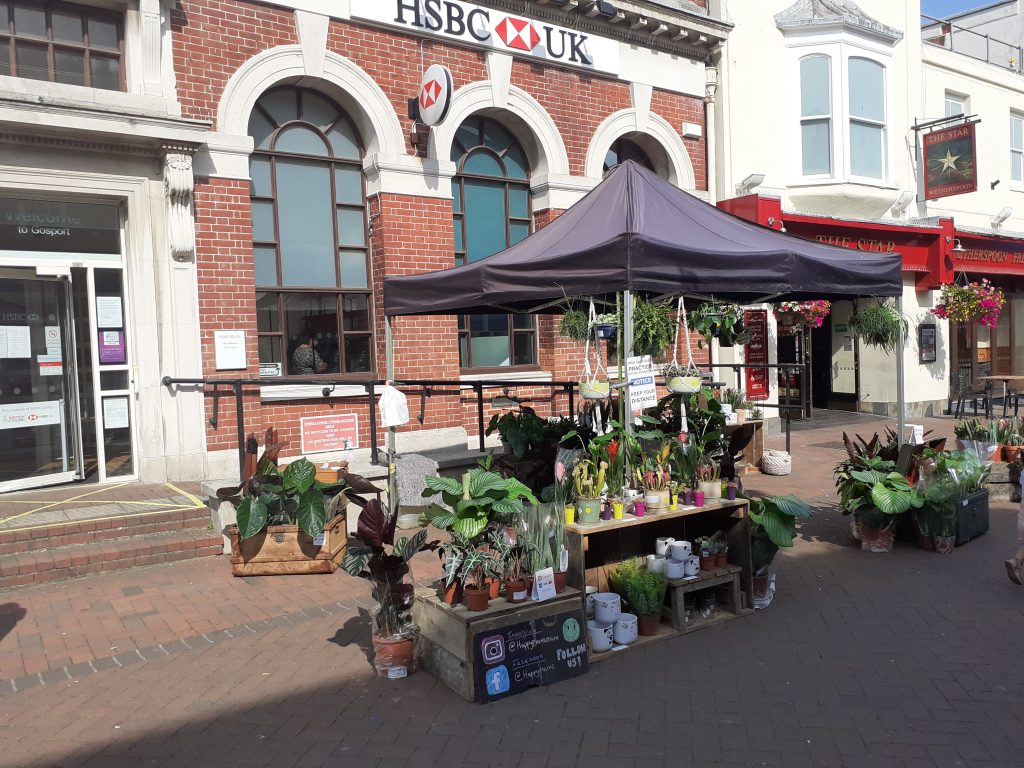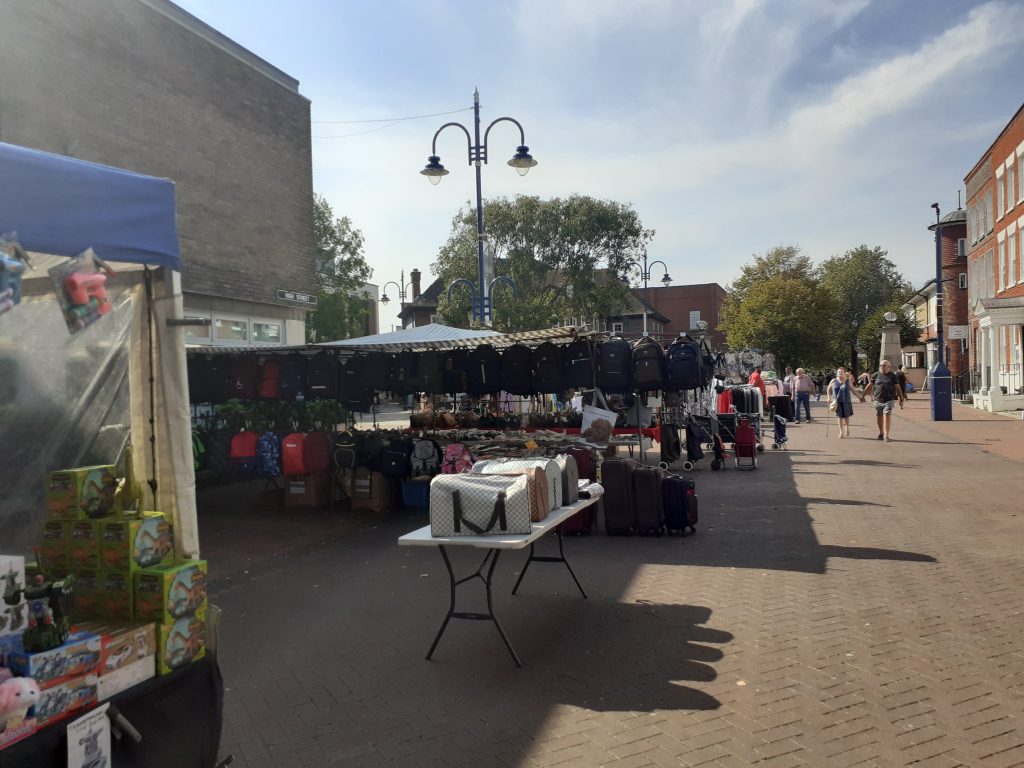How to maximise funds for town improvement
As many town centres and high streets continue to struggle with sharp declines in footfall accelerated by Covid-19 and the associated increase in internet shopping, they must adapt to changing retail patterns and the digital economy. A new approach is vital in order to repurpose, regenerate and enliven those spaces that were once at the heart of local communities, and can be again.
While the way consumers shop has evolved, it is possible for town centres and high streets to be revived as places where people meet, eat, drink and socialise together. Providing well-designed and safe spaces for communities to thrive in this way means a more economically vibrant way forward. An injection of funding, whether from central government or private investors, is often the kickstart a Local Authority requires to get much-needed projects off the ground. However, gaining the insight to ensure any funding is astutely invested is the key to optimal outcomes. Examples of central government funding for high street or town rejuvenation projects, which are also expected to attract additional private investment government funding, include:
- Future High Streets Fund (FHSF): a £1bn pot launched in December 2018. So far, 14 pilot towns have been granted up to £25m each, with the remaining still developing business cases.
- Towns Fund: 101 towns selected in September 2019 to receive up to £25mn from the £3.6bn, not restricted to the town centre or high street. Some could be those shortlisted for the FHSF, which could benefit from £50mn total. Town Deals, so far agreed in seven locations including Blackpool and Torquay, will play an important role in giving private investors the confidence to back projects.
- Heritage High Street Fund: a £95m four-year programme encompassing High Streets Heritage Action Zones, will target high streets’ conservation areas, ensuring management of their special architectural and historic interest.
In addition to funding, the government has also launched the High Streets Task Force (HSTF) – an alliance of placemaking experts that provides encouragement, tools and skills to help communities and local government transform their high streets. The HSTF is run by the Institute of Place Management (IPM) and has appointed recognised experts to support local authorities and advise on a range of issues. These include planning, urban design, placemaking, landscape architecture, resilience, transport, valuation, asset management, investment, governance, data and analytics, place management and leadership. Having been appointed in the role of HSTF Expert, I look forward to working with a variety of local authorities around the country in support of their efforts to rejuvenate their high streets.
As Professor Cathy Parker, co-chair, IPM commented: “With support and investment from the government and professionals across the country, we have a fantastic opportunity to develop places that are really valued by the local communities they serve.”
So how can Local Authorities make certain that they are using their funding to their best advantage, and investing in the facilities and services that matter most to their communities? Workman’s Activate team has been collaborating closely with a number of councils to ensure they achieve just that. Here are three examples:
The enlivenment of Gosport
The rich military history of Gosport led to it becoming a Heritage Action Zone in 2018, and additionally, in June 2020, it became one of 68 English locations to secure investment for a High Streets Heritage Action Zone scheme in the Gosport High Street and Stoke Road conservation areas. As a result, the area will receive government funding of £1.78m for the implementation of a four-year multi-project programme agreed with Historic England.
Gosport Borough Council, in partnership with Hampshire Cultural Trust, who operate Gosport Museum and Art Gallery, has begun to examine options for enlivenment of the high street, while attracting footfall reciprocally between the high street, market and museum.Working closely with Gosport Borough Council, the Activate team has undertaken trader consultations and customer research in order to form proposals for how the market can be developed and improved. Future developments will include cultural events within the museum that will spill out onto the street and integrate with the market as well as a programme of specialist monthly markets to complement the regular offer.
Master planning for regeneration in the North East
Embarking upon master planning for space within its town centre, this Local Authority in the North East of England was looking for a high-level feasibility assessment for a space that comprises former council offices. The Activate team was approached by a development partner of the Council and asked to research current local retail and leisure provision in order to analyse the viability of potential options for the site. There had been an original proposal to introduce big-box retail, which was shelved due to demand being so greatly reduced over the past few years. After researching the local area, the Activate team recommended a mixed-use scheme, including some chain store retail but supplemented with independent retail. This would be delivered alongside a food hall community hub and public realm improvements, all designed to meet the Council’s regeneration objectives.
Repurposing Merseyside spaces: from vacant to viable
The repurposing of vacant space, while also relocating the town centre market, is the key goal of this ongoing Merseyside project. Having carried out trader consultations, competitor benchmarking and customer research, the Activate team found that an increase in food and beverage offerings would be key to the sustained popularity of this town’s market.
The team put together a plan for the Council which involved repurposing a vacant retail centre to create a purpose-built market. Workman’s Building Consultants designed a layout that offered improved linkages and sightlines, as well as sections that could be shut off, leaving the food and beverage stalls to continue trading into the evenings, while Activate conducted a detailed viability study, including financial forecasts.
Looking ahead, we will establish a steering group with existing tenants to ensure a smooth relocation, and also advise on branding options. Potential new tenants for the market will be proactively sought, while Workman’s Property Management team will propose management options. Workman is therefore providing a true end-to-end service to ensure that this local authority meets its targets and optimises the funding it has received.
A holistic approach
Indeed, the Workman Activate team is well-equipped with the skills, experience and insight to deliver a holistic approach, from master planning to building consultancy to property management to placemaking. Indeed, at Workman, our teams have years of experience providing services for over 30 local authorities and other public sector bodies nationwide. So, our expertise ensures that local authorities looking to squeeze the maximum benefit from both government and private sector funding achieve their goals.
For many local authorities, the starting point is as simple as listening to local people and finding out what’s important to them – a keystone that’s easily overlooked. At Activate, our listening skills are proven, and we take pride in delivering projects that keep the hearts of local communities beating.
Our skills are already being put to valuable use in places like Gosport and Merseyside, so why not harness our expertise and let your town’s heart beat once more?
Placemaking Manager, Activate and High Streets Task Force (HSTF) Expert

